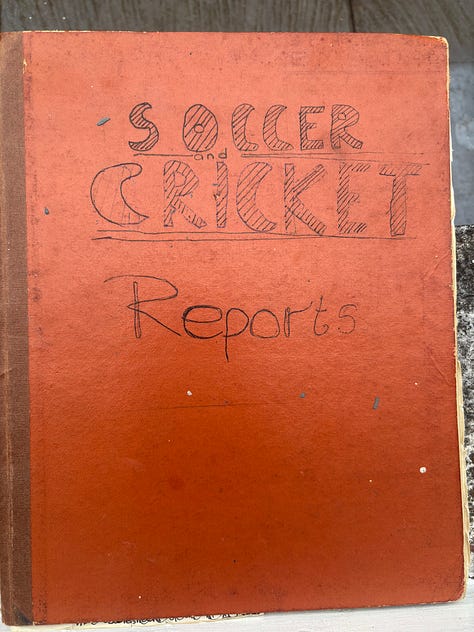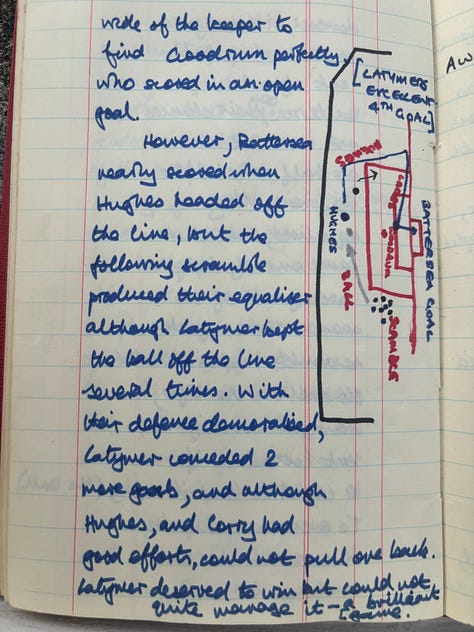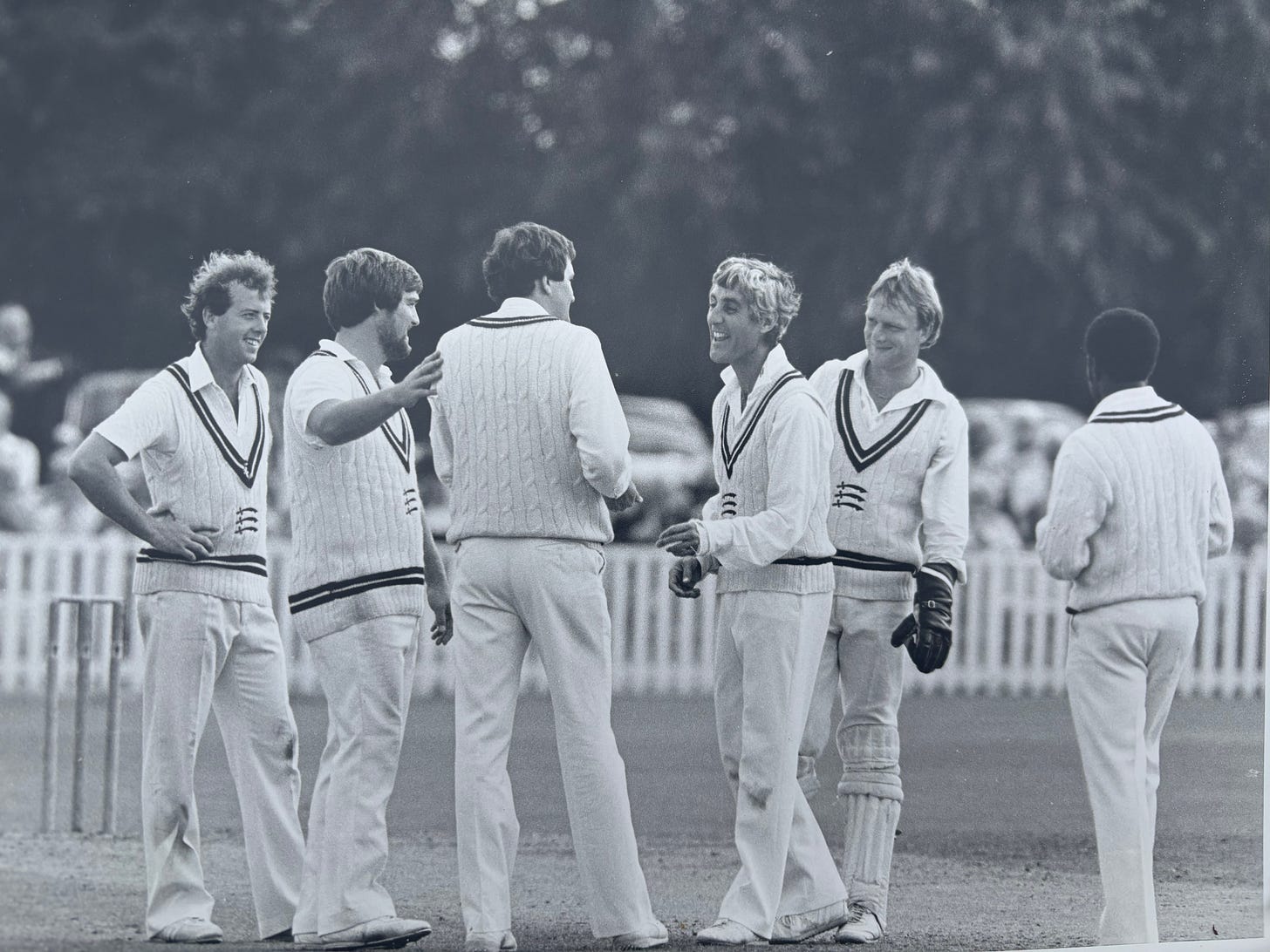DON'T GET IT RIGHT...GET IT WRITTEN
Cricket reveals character more than other sport which is why it generates so much literature
Seeing my next-door neighbour’s kids dressed up for World Book Day made me think about the art of writing. I often get asked by younger people how to get into journalism. I usually say just pick a topic that interests you, read around the subject a bit, and have a go. Just let your stream of consciousness run wild onto the page (or screen.) As my mother, who was something of a writer herself, would say, “don’t get it right, get it written.”
As it happens it all started for me almost exactly fifty years ago, with my school football and cricket reports. My mother, bless her, saved them all. They were influenced partly by the Daily Telegraph cricket writing of EW Swanton, and equally by the funny, whimsical columns written by Arthur Marshall. Of course I didn’t have the heft of Swanton or the humour of Marshall (and still don’t) but I soon found a voice. Here’s an example from May 15th, 1975: “Tiffin School managed 155 largely because of our captain [me] who couldn’t have bowled worse with a broken arm and both eyes shut.” And a week later “..our captain bowled a lively spell on the dead pitch and only had himself to blame when he clean bowled one Hampton batsman only to see the umpire signalling no-ball.”



My school sports reports - note the early diagrammatic analysis of a goal
Two things emerge from these reports, a heavy self-deprecation and a regular lack of discipline. They dogged me through my professional playing career. Infact it’s a miracle I had a professional playing career! I was lucky that I had a brilliant and understanding captain in my early years at Middlesex, Mike Brearley, whose greatest skill was in identifying everyone’s flaws and foibles and utilising or even exploiting them. A decade later I wrote about his captaincy in A Lot of Hard Yakka:
“Brearley heaped all this flotsam into the melting pot and somehow siphoned off the best bits to the benefit of all. His techniques were varied. He coaxed extra overs out of Wayne Daniel by promising an introduction to the attractive brunette in the Tavern; he worshipped Clive Radley; he reacted tersely to the provocative Phil Edmonds, or replaced him with the Rat [left arm spinner Rajesh Maru], who was showing promise. Sometimes he was intimidating. He’d give me a severe bollocking if I fell into the old British habit of not wanting to be seen to be trying too hard. He wouldn’t tolerate negligence or people holding something in reserve through fear of failure.
Middlesex 1982 - me looking startled having just taken a wicket with Gatting, Emburey, Brearley, Downton and Butcher
“Once he strode on to the pavilion balcony above a gaggle of slumbering MCC members after Roland Butcher had stupidly run out two batsmen and yelled right across the field: ‘YOU C**T, BUTCH!’ Occasionally he threw a wobbler in the dressing room if the team had been underperforming. He once ranted that players weren’t paying enough interest to the game when we were batting; they were always too busy watching telly or playing cards, he said crossly, and the gag from the next batsman in, to ‘leave the cards be, I’ll be back in a minute’, had gone beyond a joke. ‘I want more dressing-room attention on the match when we’re batting,’ he demanded, ‘and less on silly games of pontoon.’ There was dead silence when he’d finished and everyone looked ashamed of themselves. Then, with perfect timing, John Emburey said, ‘OK, whose deal is it?’”
The sentence “he wouldn’t tolerate negligence or people holding something in reserve through fear of failure” was me all over. He puts this beautifully in his own memoir the Art of Captaincy, which is still my favourite cricket book. “Simon Hughes…was over anxious not to be chosen for representative cricket too soon. Moreover he would often bowl a bad ball early or late in an over. After four perfect deliveries he would bowl two leg stump half volleys. When once I berated him with this, he looked at the ground and said with a mixture of self-satisfaction and embarrassment, ‘I’m not good enough to bowl six good balls an over.’ I found this lack of ruthlessness infuriating.”
Mostly he managed to override it, like once when, after I’d taken a wicket with a terrible long-hop and put my head in my hands in shame, he challenged “Well what do you want to do, call him back?!!” They were three pretty good years under Brearley, during which we twice won the County Championship title. But my weaknesses resurfaced under other captains, and I never quite made it to international level, presumably to my internal relief. It does demonstrate the value of an astute leader, especially in cricket, which is why the debate about England’s new white ball captain is currently raging. A poll on my Twitter site gives Harry Brook 31% of the vote, but there is more or less equal support for James Vince, and much less for Ben Stokes.
Do I regret not being more ruthless? No. I don’t think it would have made me a significantly better cricketer and, what’s more, I wouldn’t have been able to write such a successful book. Every cloud….
What’s your favourite cricket book?






Yes
That is also by Guha.
Indian Summers by John Weight is also good.
His account of his coaching days with the Indian Cricket team from 2001-05.
I really want to read an account of Duncan Fletcher's time as an English coach and Indian coach. Don't know if he has written something or there is an biographical account of it available.
Even Steve Waugh's Out of my Comfort Zone is good.
I also read Gideon's autobiography of Wasim Akram, "Sultan" and found it really insightful and fascinating.
tremendous article - you write with such insight